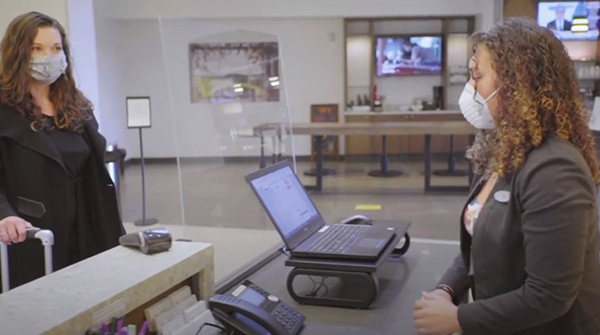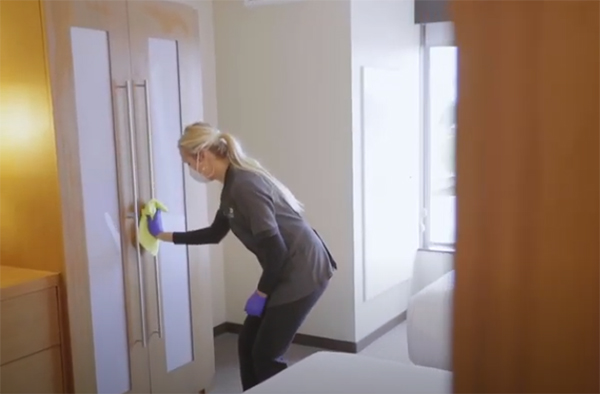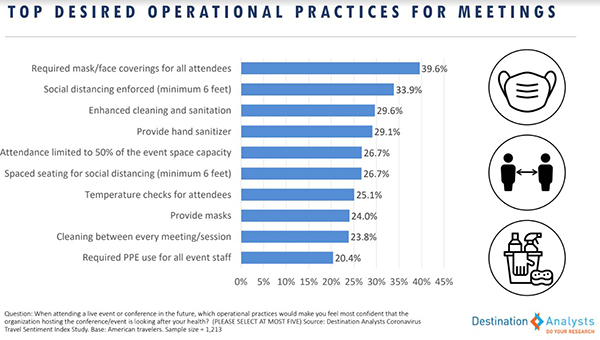Never has the events industry been so incredibly challenging to manage and navigate. Every state in the country is juggling re-opening phases with counties and cities even operating under additional criteria, guidelines, and risk prevention protocols. Virtual and hybrid events have taken over the landscape and all of this is likely to continue for some time to come.
There is good news and it is a bright light at the end of a long tunnel.
In areas where the pandemic is being well-managed and there is a lower risk of community spread, many hotels and event venues have found creative ways to bring smaller local events back to their properties.
Guidelines were issued in June by the Oregon Health Authority for Phase II of the Oregon Reopening Framework that outline safety protocols for venues and events, including:
- Gathering Guidance
- Venue and Events Guidance
- Entertainment Facilities Guidance
- Phase II Reopening Guidance Chart
It requires extra effort to assimilate all the varying recommendations and plan for how to adapt your event to meet the requirements.
Juanita Metzler, Senior Director of Conventions with Eugene, Cascades & Coast, has been participating in workgroups and advisory councils, along with watching countless hours of webinars in preparation for the return of travel and events in this ever-changing and rapidly evolving period in our history. Metzler states, “These are challenging times, but many event planners are working with venues to mitigate risks by being creative with solutions that help maintain all recommended guidelines and mandates.” Local planners are encouraged to work with Metzler to help determine a path forward for their event.
“We are working with local venues and hotels to help ensure their safety protocols go above and beyond the recommended guidance,” said Metzler.

Here are some of the things the region’s hotels are implementing:
- Protocols established and available for all staff and guests’ reference
- Temperature checks and face coverings for all staff
- Shuttle and valet services temporarily halted or limiting passengers
- Face coverings for guests, face coverings available if the guest arrives without one
- Luggage cleaned and sanitized and tagged prior to coming into the lobby
- Plexiglass guard at the front desk, any cash register area
- Floor markings or stanchions to show 6’ for social distancing at front desk
- If bell hops are removed, have a way to assist guests who need assistance (e.g., ADA issues)
- Luggage carts cleaned after each use
- Remove buffet or self-serve food and beverage items and replace with served breakfast/beverages or prepackaged items
- Limit the number of guests in the elevator at any given time
- Reusable collateral removed from rooms; disposable items discarded after each guest's stay
- Guest rooms quarantined for 24 hours between guests
- Dirty linens bagged in the guest rooms
- Stickers placed across cleaned guest room doors to show that nobody has entered since it was cleaned
- Hand sanitizer in all public areas and guest rooms
- Amenities package for each guest with extra cleaning options and your COVID-19 policy
- Internal notification to management and staff of any guest who becomes ill with presumptive diagnosis while on premise
- Internal health or medical officer on site (can be an assignment to one of your staff)
- Socially distanced ballroom setups with separate entry and exit doors

Most major hotel brands and event venues have adopted safety protocols and established clear guidelines for their staff. They are using the protocol information in their marketing campaigns and reinforcing them at every customer touchpoint from booking confirmations to property signage.
A webinar hosted by Destination Analysts on July 14 reported the results of a survey question about the top desired operational practices for meetings. It is no surprise that requiring masks, enforcing social distancing and enhanced cleaning and sanitation top the list.

As you plan your next hybrid or in-person event, make sure to ask the hotel and/or venue what their safety protocols are and ensure potential attendees are aware of them. This means including the protocols in the event marketing plan and regularly updating registered attendees.
Whether you are looking to host a smaller local event, or future event, we hope you will consider the Eugene, Cascades & Coast region of Oregon. The Eugene-Springfield metro area offers the amenities of much larger markets while being surrounded by unrivaled natural beauty. There are certainly lots of wide-open spaces to explore!
Until we meet again, take care and be safe out there.
